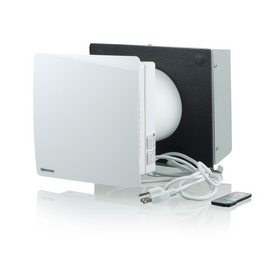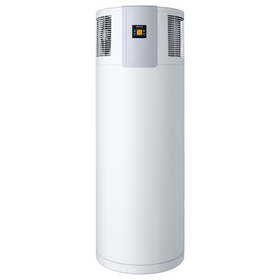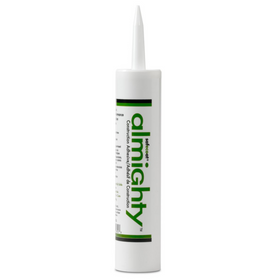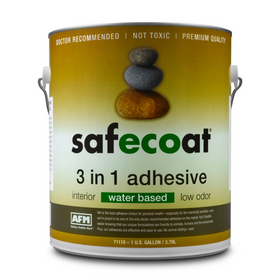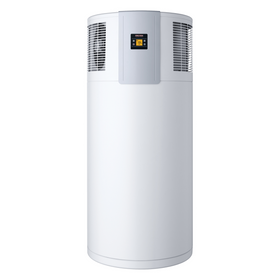
Window Films: A Buyers Guide
Last Updated: Apr 7, 2025Windows occupy around 15 to 20 percent of the total wall space in a home. Older and inefficient window styles were notorious for allowing massive amounts of heat to leak through, compromising the home's thermal performance. Window films and coatings can help to reduce energy costs and improve the thermal comfort of your home. This article will explain how window films work to enhance your home's aesthetics and energy performance. We'll also point out a few of the top companies offering window film products to help you get started.
Single pane windows, which might have been customary in your grandparent's house, have virtually no insulating capability, with an average R-Value of under 1. Single pane windows and even low-performance double pane windows can cause heat gain or loss to occur ten times faster than the surrounding insulated wall. Double-pane windows have become customary in most homes. Window technology today continues to advance, and more energy-efficient window options are emerging every year. Choosing high-performance windows and sensibly placing them throughout the house is the first line of defense. It is an essential starting point for any energy efficiency build or retrofit project focused on windows' energy performance.
Table of Contents
- What are Window Films?
- What Are Window Films Made Of?
- Are Window Films For Everyone?
- What Are The Benefits of Window Films?
- Are There Different Types of Window Films?
- Are Window Films Effective At Controlling Heat?
- How Much Do Window Films Cost?
- Which Window Films Are The Best?
- Providers of Window Film Products
- Bottom Line
What are Window Films?
Window films are thin laminates installed on the interior or the exterior of the glass on your windows. Window films are usually associated with tinting the glass of automobiles. However, this tinting option also offers immediate energy efficiency benefits at a fraction of the cost of completely replacing older windows.

What Are Window Films Made Of?
Window film is polyethylene terephthalate (PET), a thermoplastic polymer resin of the polyester family. This type of plastic offers high tensile strength and dimensional stability while also offering clarity that doesn't compromise visibility through windows. Notably, window films are not the same as factory-fitted coatings manufactured directly onto high-performance glazed windows. However, when applied correctly, window films can mimic the performance and function of these factory coatings.
Are Window Films For Everyone?
Window films are not necessarily a solution for every homeowner. For people who are currently considering building a home, it is a better idea to opt for new, energy-efficient window options that contain low solar gain glass. Windows with this type of glass have some of the highest solar heat gain coefficients (SHGC) and U-values of any windows on the market. They are hands down the best option for homeowners looking to maximize the energy performance of their homes.
However, these types of windows are also much more expensive than their counterparts—you may be looking at a 5 to 20 percent increase. You can recover some of the extra expenses down the road through energy savings. Homeowners replacing all older windows with low solar gain, triple pane, glazed windows will be facing a high cost that could be over-budget.
What Are The Benefits of Window Films?
The main benefit of window films is that they can add insulation to your home while also reducing the amount of heat transfer through your windows. As part of a retrofit energy improvement, window films are among the most cost-competitive home energy improvements. It is ideal for homes located in hot and mixed climates. The glaring summer sun can cause air conditioning units to work overtime due to heat-gain through windows.
Are There Different Types of Window Films?
There are several types of window films on the market, all of which have different properties and performance levels. Before purchasing a window film, it is essential to determine what you are trying to accomplish and what features you want from your window films. Like windows, films have a solar heat gain coefficient (SHGC), U-Value rating, and visible transmission (VT) rating. For example, if you want to reduce the summer sun's glare and heat, look for window films with a low SHGC and VT rating. You might live in a climate with mild summers, so heat gain might not be a significant issue for you. You might only want to maintain proper light transmission in your home and search for films with a high VT.
Are Window Films Effective At Controlling Heat?
Window films will help keep the heat inside your home during winter. These films serve a double purpose and are the only ones on the market that can reduce the window's U-value. This improves insulation and thermal performance in the winter while also reducing solar gain and glare to keep your home cooler in the summer.
How Much Do Window Films Cost?
Replacing an older window in your home with a triple glazed, high-efficiency window could cost you as much as $1,000 per window. These types of windows will certainly be much more energy-efficient. Total energy savings will also depend on the insulation, building envelope, and other structural elements that all contribute to your home's thermal performance. On the other hand, window films can cost as low as $2 per square foot if you are planning to apply the film yourself. Even if you hire a professional installer, the cost is rarely above $8 per square foot. While the total cost varies depend on the size of your house, most American households are looking at the expense of roughly $600 for the entire home. Completely replacing your window could easily be ten times that amount or more.
Which Window Films Are The Best?
A consideration when choosing the best window film is the WERS rating. WERS, which stands for The Window Energy Rating Scheme (WERS), "provides a scientifically based, fair, and credible rating system for the assessment of fenestration products for their energy efficiency performance." This rating can be used to increase your home's energy rating, primarily if an accredited installer installs the window films.

Homeowners can install films, but it is recommended to contract professional installers. To avoid creating bubbles, trapping dirt, or even causing the window glass to break through thermal stress associated with improper installment. In many cases, warranties for different window film products will require professional installation.
Homeowners should also carefully consider the finished look of your window after installation is complete. Highly reflective films might help to increase privacy in your home. Some of these reflective tints can increase visibility into the house during the evening and night when light levels are higher inside than outside.
Providers of Window Film Products
NexFil USA
NexFil USA window film manufacturer is present worldwide, distributing various window film products in over 60 countries. In terms of residential window films, they specialize in solar control films. The company claims that their films can reject up to 88 percent of the sun's total solar energy. That makes these films an excellent option for homes located in areas with hot summers and other homes that have a south or west-facing orientation where afternoon solar gain can noticeably increase the heat in the house.
SunTek Window Films
SunTek Window Films offer a diverse array of products that allow homeowners to modify their homes' existing windows. Either to create privacy, control temperatures, and reduce glare. Their films are manufactured to preserve views while enhancing the glass with powerful, heat-controlling properties. One of the unique films made by SunTek is a spectral select film made from metalized nano-particles. This film has a meager reflective look while still radically reducing solar glare inside the home.
Madico
Madico Window Films is a company specializing in window film products. These can help your home save energy, control glare, improve safety, and enhance the appearance of your windows. One of their window films contains both a Nano Particle (Pure Vision) and a ceramic called Madico Advanced Ceramic, which acts as a High Definition film.
Bottom Line
Window films can be a much more affordable option if you're looking to improve energy-efficiency without replacing windows.
Tobias Roberts
Tobias runs an agroecology farm and a natural building collective in the mountains of El Salvador. He specializes in earthen construction methods and uses permaculture design methods to integrate structures into the sustainability of the landscape.

